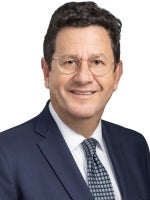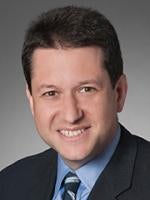On November 20, 2013, US District Judge Paul G. Gardephe of the US District Court for the Southern District of New York issued a decision with potentially significant consequences for attorneys conducting internal investigations and parties seeking to obtain (or shield) disclosure of witness interview notes memorializing such investigations. Gruss v. Zwirn, 09-CV-6441 (S.D.N.Y., Nov. 20, 2013). Judge Gardephe’s ruling, issued in a defamation action brought against a hedge fund by a former employee, followed a request for clarification after an earlier ruling in July 2013. Through the two rulings, Judge Gardephe ordered production, for in camerainspection by the court, of interview notes prepared by outside counsel for the fund pertaining to 21 witnesses whose statements were obtained in the course of an internal investigation. The witness statements were voluntarily disclosed to the US Securities and Exchange Commission (SEC), in summary form, through PowerPoint presentations. Judge Gardephe found that the fund’s voluntary production of the PowerPoint presentations to the SEC containing summaries of what the 21 witnesses told outside counsel during the internal investigation constituted a subject-matter waiver warranting the production of the underlying witness interview notes, subject to redaction of opinion work product material (which plaintiff in the defamation action did not seek).
Judge Gardephe’s rulings offer a broad application of the Second Circuit’s decision in In re Steinhardt Partners, L.P., 9 F.3d 230 (2d Cir. 1993), and further limit the utility of the “selective waiver” doctrine, under which a party may, under narrowly circumscribed conditions, voluntarily produce privileged material to an adversary on a selective basis, while maintaining the privilege as to others. Indeed, Judge Gardephe’s rulings arguably expand onSteinhardt’s repudiation of selective waiver in three important ways: (1) the court ignored a confidentiality agreement between the fund and the SEC that sought to insulate the voluntary SEC production from a waiver claim, finding that a carve-out in the confidentiality agreement permitting disclosure “in furtherance of [the SEC’s] discharge of its duties and responsibilities” rendered the agreement illusory; (2) the court extended the waiver to witness interview notes prepared by outside counsel that were not themselves produced to the SEC; and (3) the court expanded on doctrinal opposition to selective waiver, highlighting purported “strategic and manipulative” abuses of selective productions while minimizing the indisputable salutary purposes of the doctrine (e.g., promotion of cooperation with governmental investigations).
Background
Beginning in 2006, the subject hedge fund initiated an internal investigation after allegations of impropriety in the collection and use of management fees came to light. Attention for the improprieties ultimately focused on the fund’s chief financial officer (CFO), who resigned in late 2006. Outside counsel interviewed 21 separate witnesses and prepared privileged and confidential memoranda summarizing the results of those interviews. In early 2007, the fund distilled those interview memoranda into a PowerPoint presentation. The PowerPoint and certain related documents were voluntarily produced without subpoena to the SEC under a purported confidentiality agreement, which provided, in part, that:
[B]y providing or disclosing the Protected Materials to the [SEC] pursuant to this agreement, [the fund] does not intend to waive the protection of the attorney-work product doctrine, attorney-client privilege, or any other privilege applicable as to third parties. [The fund] believes that the Protected Materials are protected by, at minimum, the attorney work product doctrine and the attorney client privilege. [The fund] believes that the Protected Materials warrant protection from disclosure. The [SEC] will maintain the confidentiality of the Protected Materials pursuant to this agreement and will not disclose them to any third party, except to the extent that the [SEC] determines that disclosure is required by law or would be in furtherance of the Commission’s discharge of its duties and responsibilities [emphasis added].
The underlying witness interview memoranda were not produced to the SEC.
At various points during the investigation, the fund made statements to investigators and regulators that implicated the CFO and minimized the culpability of others within the fund.
The CFO subsequently sued the company, seeking damages for breach of contract and defamation, among other claims. During the course of the litigation, the fund produced the PowerPoint previously provided to the SEC, but withheld the underlying witness interview memoranda, maintaining that those documents retained their privileged status. Magistrate Judge Michael H. Dolinger agreed in a 2011 decision, citing the aforementioned confidentiality agreement with the SEC and the fact that the witness interview memoranda, unlike the PowerPoint, were never produced to the SEC. Counsel for the CFO appealed, and Judge Gardephe reversed, finding that the confidentiality agreement was “a fig leaf” and “illusory,” and that the fact that the witness interview memoranda had not been previously produced was not dispositive because production of the PowerPoint constituted a waiver of the underlying source material.
In the November 20, 2013, supplemental ruling, Judge Gardephe rejected outside counsel’s request for clarification, which argued in part that counsel itself holds a privacy interest in certain work product, separate and apart from the interests of its client, under New York state case law. Sage Realty Corp. v. Proskauer Rose Goetz & Mendelsohn LLP, 91 N.Y.2d 30. The court found that federal law governed the issue and that the basis for the narrow state law exception had not been met in any event because the dispute was not between a firm and its former client, but with a third party, and because plaintiff was seeking factual statements of the witness, and not seeking opinion work product or counsel’s own private information (e.g., summaries of discussions involving counsel’s own counsel).
Analysis
The rulings in Gruss are notable for several reasons. First, Judge Gardephe’s decisions highlight the judiciary’s skepticism of “selective waiver” arguments generally. Judge Gardephe repeatedly expressed concern that the selective assertion of privilege undermines the underlying search for the truth, and pointedly quoted Steinhardt’s admonition that “selective waiver” not become “merely another brush on an attorney’s palette, utilized and manipulated to gain tactical or strategic advantage.” The decisions also emphasize judicial disagreement about the use of confidentiality agreements—however strong they may be—as a shield against waiver claims. In fact, the dicta in Steinhardt suggesting that a confidentiality agreement can operate as a shield against waiver remains the subject of dispute in lower courts, and the modern trend continues to move against the recognition of such agreements in selective waiver disputes. Finally, the waiver of privilege as to underlying source material arguably extends Steinhardt and further raises the stakes for practitioners inclined to share privileged material with regulators.
Practice Pointers
In the wake of the Gruss decisions, practitioners in the Southern District of New York and elsewhere conducting internal investigations may wish to re-assess language in standard confidentiality agreements governing the voluntary disclosure of privileged material to governmental regulators to ensure that such agreements are sufficiently stringent to pass judicial scrutiny. Practitioners may also wish to reconsider the scope of voluntary productions of privileged material to governmental regulators, especially in situations where collateral civil litigation is expected, and assess whether such productions are better made voluntarily or through subpoena processes. Finally, practitioners should pay close attention to the contents of witness interview notes lest those notes find their way into the hands of an adversary after selective production of related material to regulators.
Click here to read the July 10, 2013 decision.
Click here to read the November 20, 2013 decision.





 />i
/>i

